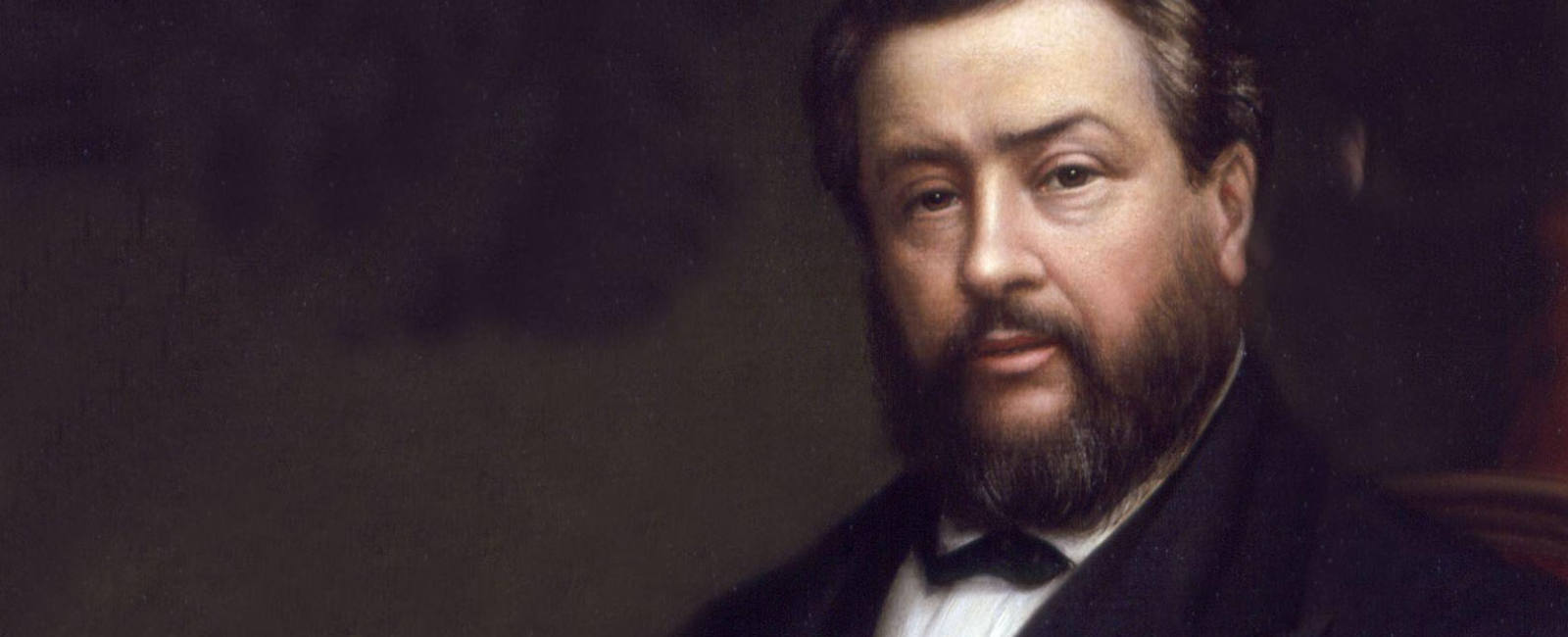The Resurrection of the Dead

An excerpt of a sermon by C.H. Spurgeon delivered on February 17, 1856 in Southwark, England
“There will be a resurrection of the dead, both of the just and unjust.” (Acts 24:15)
Reflecting the other day upon the sad state of the churches at the present moment, I was led to look back to apostolic times, and to consider wherein the preaching of the present day differed from the preaching of the apostles.
I remarked the vast difference in their style from the set and formal oratory of the present age. I remarked that the apostles did not take a text when they preached, nor did they confine themselves to one subject, much less to any place of worship, but I find that they stood up in any place and declared from the fullness of their heart what they knew of Jesus Christ. But the main difference I observed was in the subjects of their preaching. Surprised I was when I discovered that the very staple of the preaching of the apostles was the resurrection of the dead.
I found myself to have been preaching the doctrine of the grace of God, to have been upholding free election, to have been leading the people of God as well as I was enabled into the deep things of His word; but I was surprised to find that I had not been copying the apostolic fashion half as nearly as I might have done. The apostles when they preached always testified concerning the resurrection of Jesus, and the consequent resurrection of the dead. It appears that the Alpha and the Omega of their gospel was the testimony that Jesus Christ died and rose again from the dead according to the Scriptures. When they chose another apostle in the room of Judas, who had become apostate, they said, “One of these must become a witness with us of His resurrection,” (Acts 1:22) so that the very office of an apostle was to be a witness of the resurrection. And well did they fulfil their office. When Peter stood up before the multitude, he declared unto them that David “Spoke concerning the resurrection of the Christ.” (Acts 2:31) When Peter and John were taken before the council, the great cause of their arrest was that the rulers were grieved because “They taught the people and preached in Jesus the resurrection from the dead.” (Acts 4:2) When they were set free, after having been examined, it is said, “And with great power the apostles gave witness to the resurrection of the Lord Jesus. And great grace was upon them all.” (Acts 4:33) It was this which stirred the curiosity of the Athenians when Paul preached among them. They said, “‘He seems to be a proclaimer of foreign gods,’ because he preached to them Jesus and the resurrection.” (Acts 17:18) And this moved the laughter of the Areopagites, for when he spoke of the resurrection of the dead, “Some mocked, while others said, ‘We will hear you again on this matter.’” (Acts 17:32) Truly did Paul say, when he stood before the council of the Pharisees and Sadducees, “Concerning the resurrection of the dead I am being judged by you this day.” (Acts 24:21) And equally truly did he constantly assert, “If Christ is not risen, then our preaching is empty and your faith is also empty.” (1 Corinthians 15:14)
The resurrection of Jesus and the resurrection of the righteous is a doctrine which we believe, but which we too seldom preach or care to read about. Though I have inquired of several booksellers for a book specially upon the subject of the resurrection, I have not yet been able to purchase one of any sort whatever; and when I turned to Dr. Owen’s [here Spurgeon is referring to the writings of John Owen (1616-1683) a Puritan pastor and theologian] works, which are a most invaluable storehouse of divine knowledge, containing much that is valuable on almost every subject I could find, even there, scarcely more than the slightest mention of the resurrection. It has been set down as a well-known truth, and therefore has never been discussed. Heresies have not risen up respecting it; it would almost have been a mercy if there had been, for whenever a truth is contested by heretics, the orthodox fight strongly for it, and the pulpit resounds with it every day. I am persuaded, however, that there is much power in this doctrine; and if I preach it this morning you will see that God will own the apostolic preaching, and there will be conversions. I intend putting it to the test now, to see whether there be not something which we cannot perceive at present in the resurrection of the dead, which is capable of moving the hearts of men and bringing them into subjection to the gospel of our Lord and Saviour Jesus Christ.
There are very few Christians who believe the resurrection of the dead. You may be surprised to hear that, but I should not wonder if I discovered that you yourself have doubts on the subject. By the ‘resurrection of the dead’ is meant something very different from the immortality of the soul: that, every Christian believes, and therein is only on a level with the heathen, who believes it too. The light of nature is sufficient to tell us that the soul is immortal, so that the infidel who doubts it is a worse fool even than a heathen, for he, before Revelation was given, had discovered it—there are some faint glimmerings in men of reason which teach that the soul is something so wonderful that it must endure forever. But the resurrection of the dead is quite another doctrine, dealing not with the soul, but with the body. The doctrine is that this actual body in which I now exist is to live with my soul; that not only is the “vital spark of heavenly flame” to burn in heaven, but the very censer in which the incense of my life doth smoke is holy unto the Lord, and is to be preserved for ever. The spirit, every one confesses, is eternal; but how many there are who deny that the bodies of men will actually start up from their graves at the great day? Many of you believe you will have a body in heaven, but you think it will be an airy fantastic body, instead of believing that it will be a body like to this—flesh and blood (although not the same kind of flesh, for all flesh is not the same flesh), a solid, substantial body, even such as we have here. And there are yet fewer of you who believe that the wicked will have bodies in hell; for it is gaining ground everywhere that there are to be no positive torments for the damned in hell to affect their bodies, but that it is to be metaphorical fire, metaphorical brimstone, metaphorical chains, metaphorical torture. But if ye were Christians as ye profess to be, ye would believe that every mortal man who ever existed shall not only live by the immortality of his soul, but his body shall live again, that the very flesh in which he now walks the earth is as eternal as the soul, and shall exist for ever. That is the peculiar doctrine of Christianity. The heathens never guessed or imagined such a thing; and consequently when Paul spoke of the resurrection of the dead, “Some mocked,” which proves that they understood him to speak of the resurrection of the body, for they would not have mocked had he only spoken of the immortality of the soul, that having been already proclaimed by Plato and Socrates, and received with reverence. We are now about to preach that there shall be a resurrection of the dead, both of the just and unjust. We shall consider first the resurrection of the just; and secondly, the resurrection of the unjust.
The first proof I will offer of this, is, that it has been the constant and unvarying faith of the saints from the earliest periods of time. Abraham believed the resurrection of the dead, for it is said in the Epistle to the Hebrews that he concluded “That God was able to raise him [Isaac] up, even from the dead, from which he also received him in a figurative sense.” (Hebrews 11:19) I have no doubt that Joseph believed in the resurrection, for he gave commandment concerning his bones; and surely he would not have been so careful of his body if he had not believed that it should be raised from the dead. The Patriarch Job was a firm believer in it, for he said in that oft repeated text, Job 19:25-26, “For I know that my Redeemer lives, and He shall stand at last on the earth; and after my skin is destroyed, this I know, that in my flesh I shall see God.” David believed it beyond the shadow of a doubt, for he sang of Christ, “For You will not leave my soul in Sheol, nor will You allow your holy one to see corruption.” (Psalm 16:10) Daniel believed it, for he said that “Many of those who sleep in the dust of the earth shall awake, some to everlasting life, some to shame and everlasting contempt.” (Daniel 12:2) Souls do not sleep in the dust; bodies do. It will do you good to turn to one or two passages and see what these holy men thought. For instance, in Isaiah 26:19 you read: “Your dead shall live; together with my dead body they shall arise. Awake and sing, you who dwell in dust; for your dew is like the dew of herbs, and the earth shall cast out the dead.” We will offer no explanation. The text is positive and sure. Let another prophet speak — Hosea 6:1-2: “Come, and let us return to the Lord; for He has torn, but He will heal us; He has stricken, but He will bind us up. After two days He will revive us; on the third day He will raise us up, that we may live in His sight.” Although this does not declare the resurrection, yet it uses it as a figure which it would not do were it not regarded as a settled truth. It is declared by Paul, also, in Hebrews 11:35, that such was the constant faith of the martyrs; for he says, “Others were tortured, not accepting deliverance, that they might obtain a better resurrection.” All those holy men and women, who, during the time of the Maccabees, stood fast by their faith, and endured the fire and sword, and tortures unutterable, believed in the resurrection, and that resurrection stimulated them to give their bodies to the flames, not caring even for death, but believing that thereby they should attain to a blessed resurrection.
But our Saviour brought the resurrection to light in the most excellent manner, for He explicitly and frequently declared it. “Do not marvel at this,” said He, “for the hour is coming in which all who are in the graves will hear His [God’s] voice.” (John 5:28) Indeed, throughout His preaching, there was one continued flow of firm belief, and a public and positive declaration of the resurrection of the dead. I will not trouble you with any passages from the writings of the apostles; they abound therewith. In fact, Holy Scripture is so full of this doctrine that I marvel, brethren, that we should so soon have departed from the steadfastness of our faith, and that it should be believed in many churches that the actual bodies of the saints will not live again, and especially that the bodies of the wicked will not have a future existence. We maintain as our text doth, that “There will be a resurrection of the dead, both of the just and unjust.” (Acts 24:15)
[End of Excerpt. Available in the Public Domain under the same title.]
Charles Haddon (C.H.) Spurgeon (1834-1892) was a highly influential English preacher and pastor. He was considered a highly skilled orator by many who heard him. Many of his sermons were transcribed while he spoke and translated into multiple languages. His messages, commentaries, and other writings are still held in high regard due to their expositional strength.










